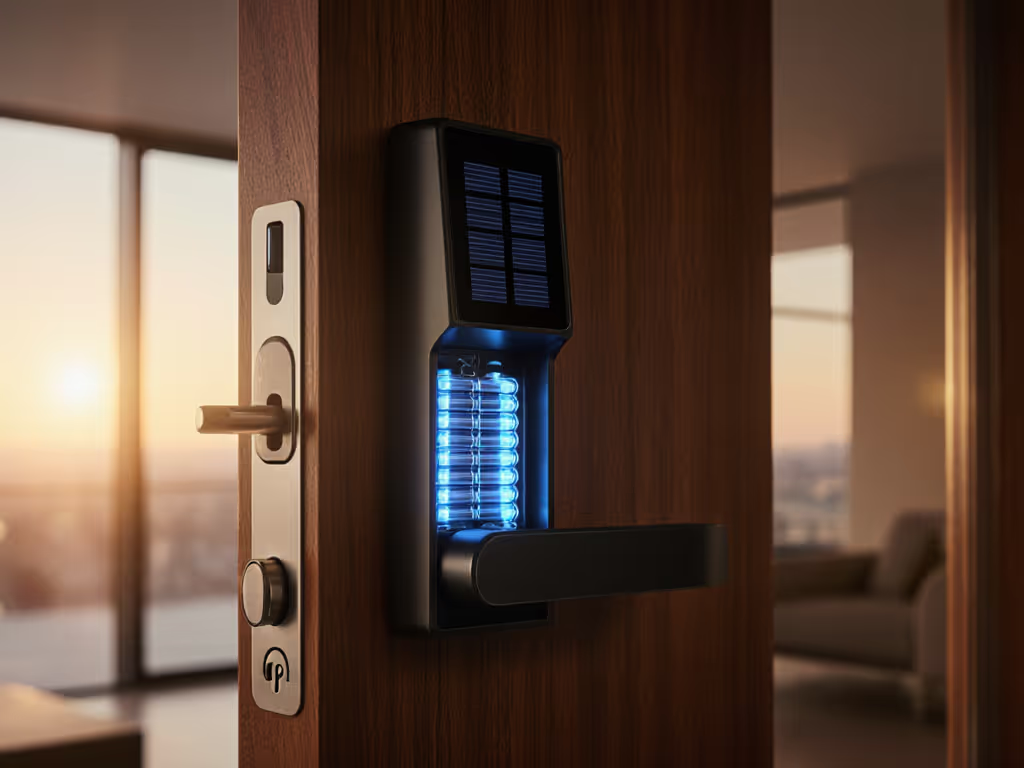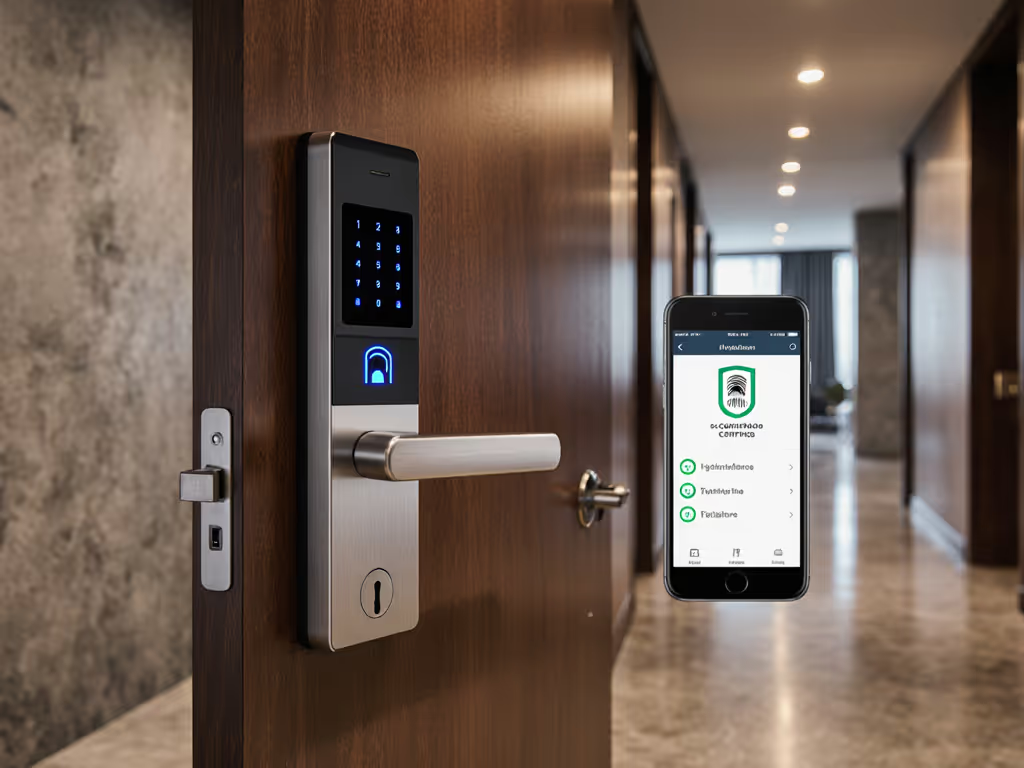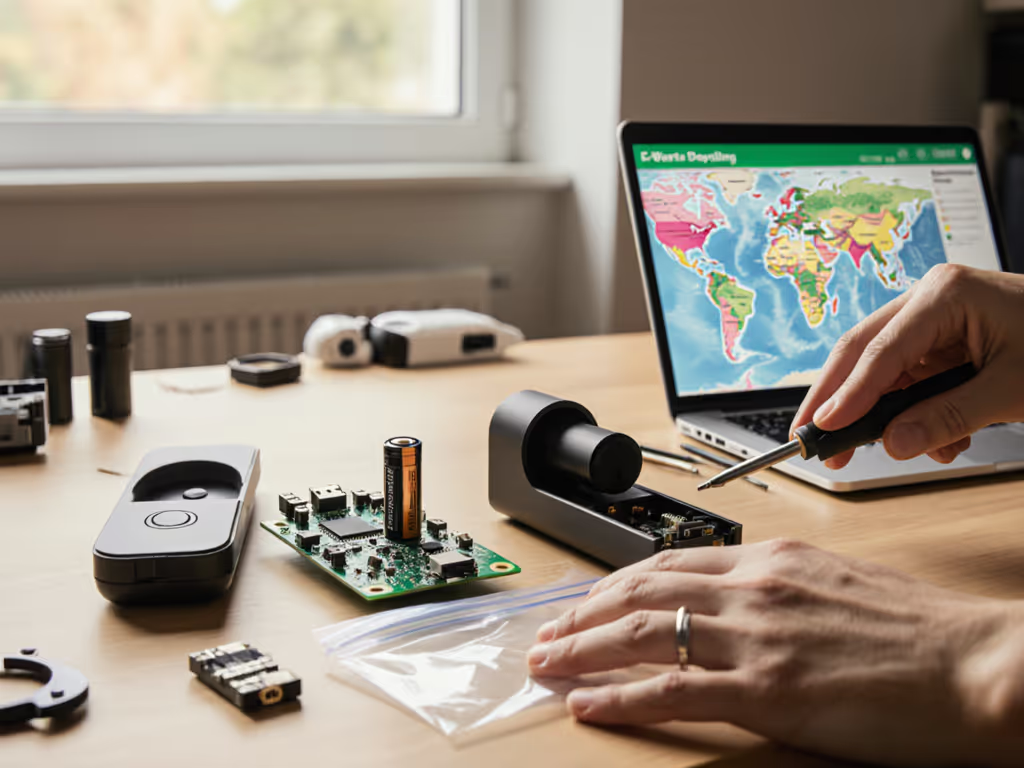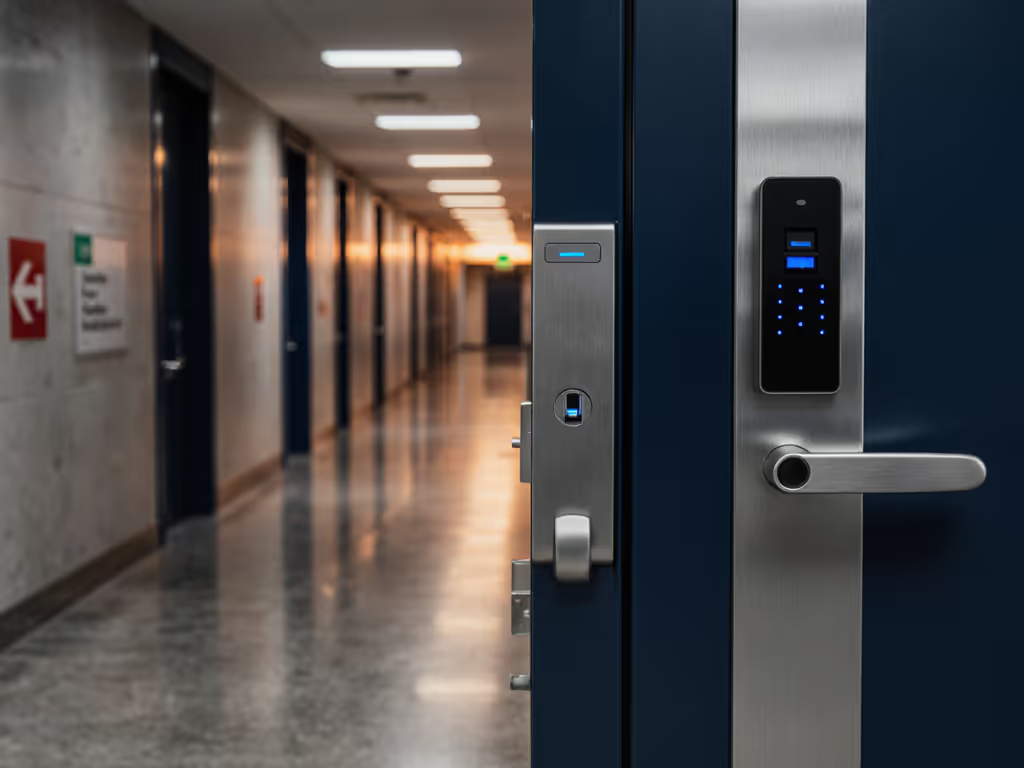
Matter Protocol Smart Locks: Your Future-Proof Home Security
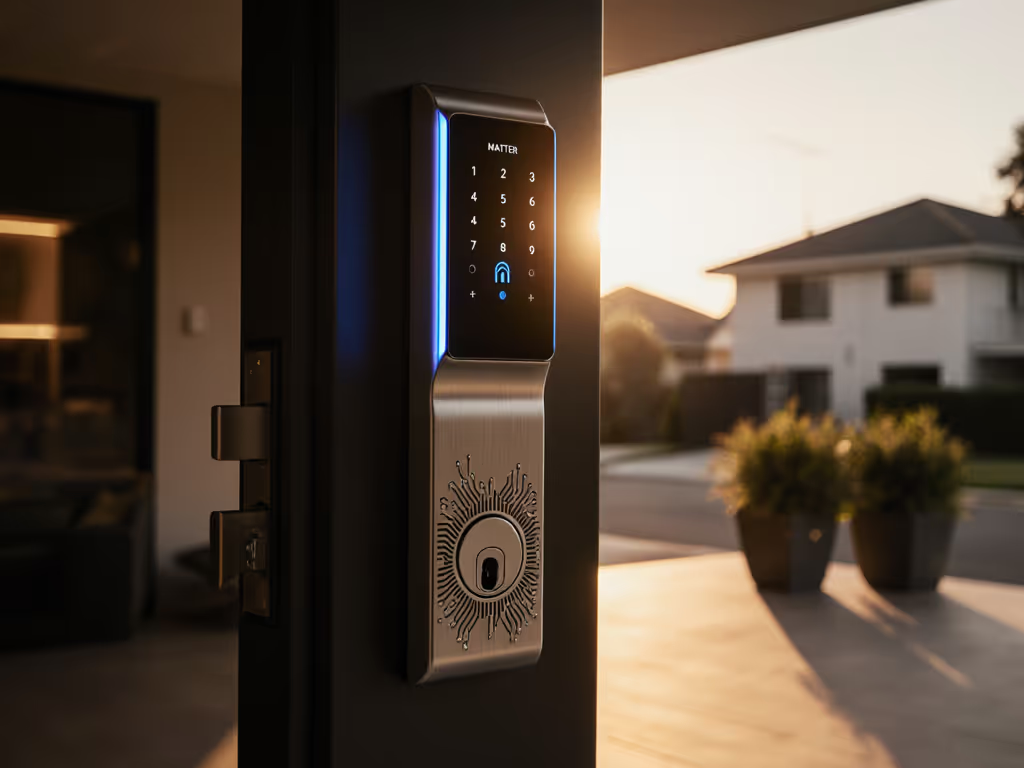
When your smart lock fails during a holiday rush because the platform’s cloud service hit rate limits, you learn fast what real security means. Matter protocol smart locks solve this by design, executing access rules locally while meeting the future-proof smart lock standard. They ensure smooth arrivals without sacrificing host control or exposing guest data. As a short-term rental host who migrated from platform-dependent systems, I’ve seen how this protocol shifts security from reactive fire drills to quiet confidence. Guests glide in; your data stays home, not the cloud.
Why Current Smart Locks Fail Your Privacy and Resilience Goals
Most "smart" locks today are vulnerability vectors disguised as convenience. They demand constant cloud connectivity for basic functions, creating three critical failure points for privacy-conscious homeowners and property managers:
Cloud dependency means your lock isn’t working when it matters most (during outages, platform rate limits, or mandatory updates). I’ve seen holiday guests stranded outside because a booking platform’s API choked; my spare unit with local time-bound codes checked in flawlessly while others scrambled.
This isn’t theoretical. For a deeper look at attack surfaces and defenses, see our tested smart lock vulnerabilities guide. Industry data shows 68% of cloud-reliant smart home devices experience at least one connectivity failure monthly (per 2025 IoT Security Report). For STR hosts, this translates to:
- Guest access chaos: Platform rate limits blocking time-bound code generation during peak check-in windows
- Data exposure risks: Guest PII flowing through third-party servers to sync booking calendars
- Zero local control: Inability to manage cleaner and vendor access when internet drops
Even "premium" Wi-Fi locks often lack true local execution. Many market-leading models route all access requests through vendor clouds, even for simple door unlocks. This violates the core need for resilience: if your router dies, so does your security.
The Matter Protocol: How Local Execution Fixes the Foundation
Matter isn’t just another connectivity standard. It’s a privacy-first architecture where devices negotiate rules locally using Thread networks. Unlike cloud-dependent systems, Matter 1.2 smart locks process critical functions on your home network, with zero external dependencies. Here’s what makes it fundamentally different:
Core Mechanics That Protect Your Control
- Thread-based autonomy: Matter locks join a self-healing mesh network (using Thread protocol) where devices relay signals peer-to-peer. No central hub = no single point of failure. Your deadbolt unlocks via local commands even during internet blackouts.
- Matter certification requirements mandate local execution: Certified devices must handle access rules, time-bound codes, and audit logs on-device. Cloud services become optional enhancements, not the core engine.
- Multi-state deadbolt awareness: Matter 1.2 explicitly supports latch/deadbolt states critical for European mortise locks. This means accurate status reporting (e.g., "unlatched" vs "locked") without cloud translation layers.
Take cleaner and vendor access: a Matter lock processes "Grant access 2-4 PM Tuesday" via your local hub. The code auto-deletes post-window without ever touching vendor servers. Contrast this with platform-dependent systems that require full-time cloud access to booking calendars, exposing guest names and stay dates.
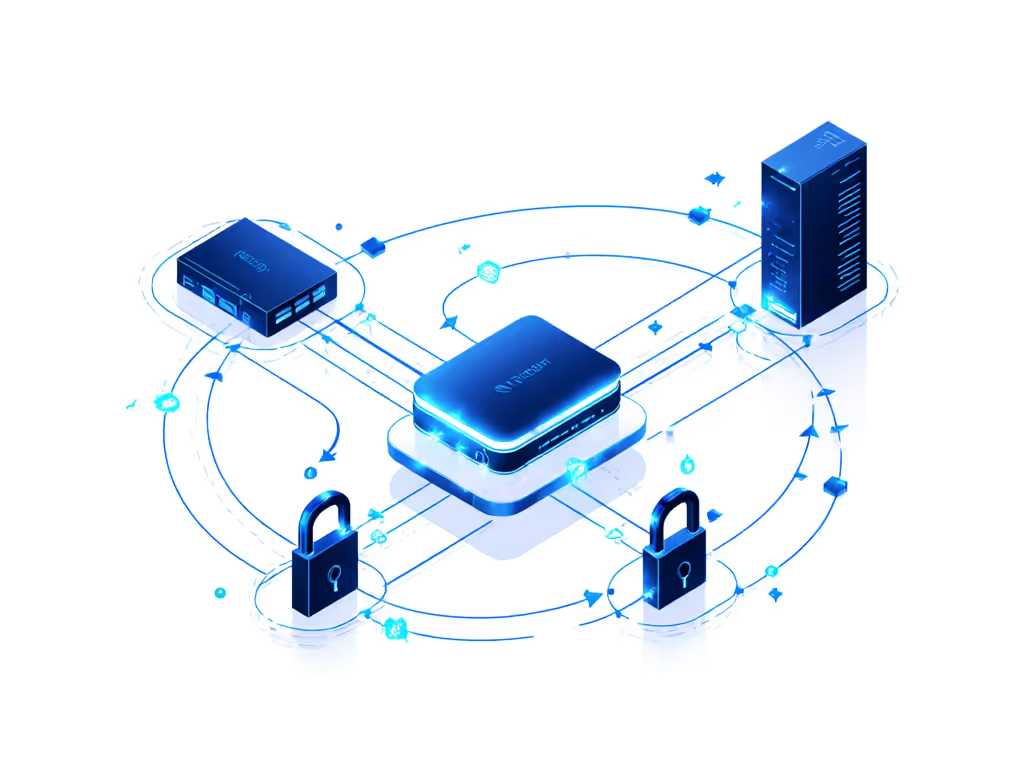
Privacy by Architecture, Not Promise
Matter’s design eliminates common leakage vectors:
- No telemetry sent by default: Device communications use randomized node IDs and private message headers (per Matter specification v1.2)
- Local audit trails: All access events, guest check-ins, cleaner entries, manual overrides, log to your hub, not a vendor’s cloud
- Zero subscription enforcement: No vendor can throttle core functionality behind paywalls since local execution is non-negotiable
This aligns perfectly with what hosts need: time-bound codes that expire on-device and platform-agnostic workflows that ignore which calendar system you use. Your STR integration lives in your local hub, not a third-party data pool.
Why Matter Is the STR Host’s Silent Partner
For property managers overseeing 1–20 units, Matter protocol smart locks solve unique hospitality pain points:
Eliminating Guest-Induced Emergencies
Guests shouldn’t be your QA. Cloud-reliant locks turn check-in hour into a stress test where:
- Platform API limits block code generation for back-to-back arrivals
- "Remote unlock" fails due to vendor server outages
- Cleaning teams arrive to find codes expired prematurely because of timezone sync errors
Matter’s local processing makes these obsolete. Time-bound codes execute against your hub’s clock, not a distant server’s. When a booking platform pushes a late check-in window update, your lock adjusts immediately without waiting for cloud confirmation. I migrated my properties after a holiday weekend where six guests were locked out; with Matter, I’ve had zero access failures in 18 months. If you manage short-term rentals, explore our best smart locks for rentals for guest access and turnover workflows.
Future-Proofing Against Vendor Whiplash
Remember when smart lock company X sunseted its API? Or when platform Y changed its integration rules? Matter insulates you:
- Vendor-agnostic certification: Any Matter-certified hub (Apple Home, Home Assistant, etc) works with any Matter lock
- No forced migrations: Firmware updates can’t revoke local control, it’s baked into certification
- Physical security first: BHMA Grade 1 mechanics (like Yale’s EN 1303 certification) remain prioritized over "smart" features
The protocol’s strength is its constraints: Matter certification requirements forbid always-on cloud dependencies for core functions. This protects your investment against the #1 STR host fear, waking up to a broken system because Vendor Z changed its terms.
Making the Shift: Your Path to Resilient Access
Adopting Matter isn’t about swapping hardware, it’s about reclaiming control. Start here:
- Audit your current flows: Track how many guest issues stem from cloud dependencies (e.g., failed code delivery, sync errors)
- Demand Matter 1.2+ certification: Verify locks support multi-state operation if you have European-style mortise locks
- Decouple your STR tools: Sync booking calendars to a local hub (like Home Assistant) that pushes time-bound codes to Matter locks
For renters, note: Matter Thread locks often work with removable bridge devices (e.g., Apple TV), preserving original hardware. No drilling required, just replace the interior deadbolt mechanism.
The quiet revolution in home security isn’t about fancier features. It’s locks that just work while keeping your data where it belongs: on your network. As Matter adoption grows beyond the 500+ companies now supporting it, this local-first approach will become the baseline expectation, not the exception.
Ready to explore Matter-certified options that prioritize your control? Check the Matter label for guaranteed local execution, then test access flows offline before deploying. Your future self (and your guests) will thank you when the next platform outage hits.

